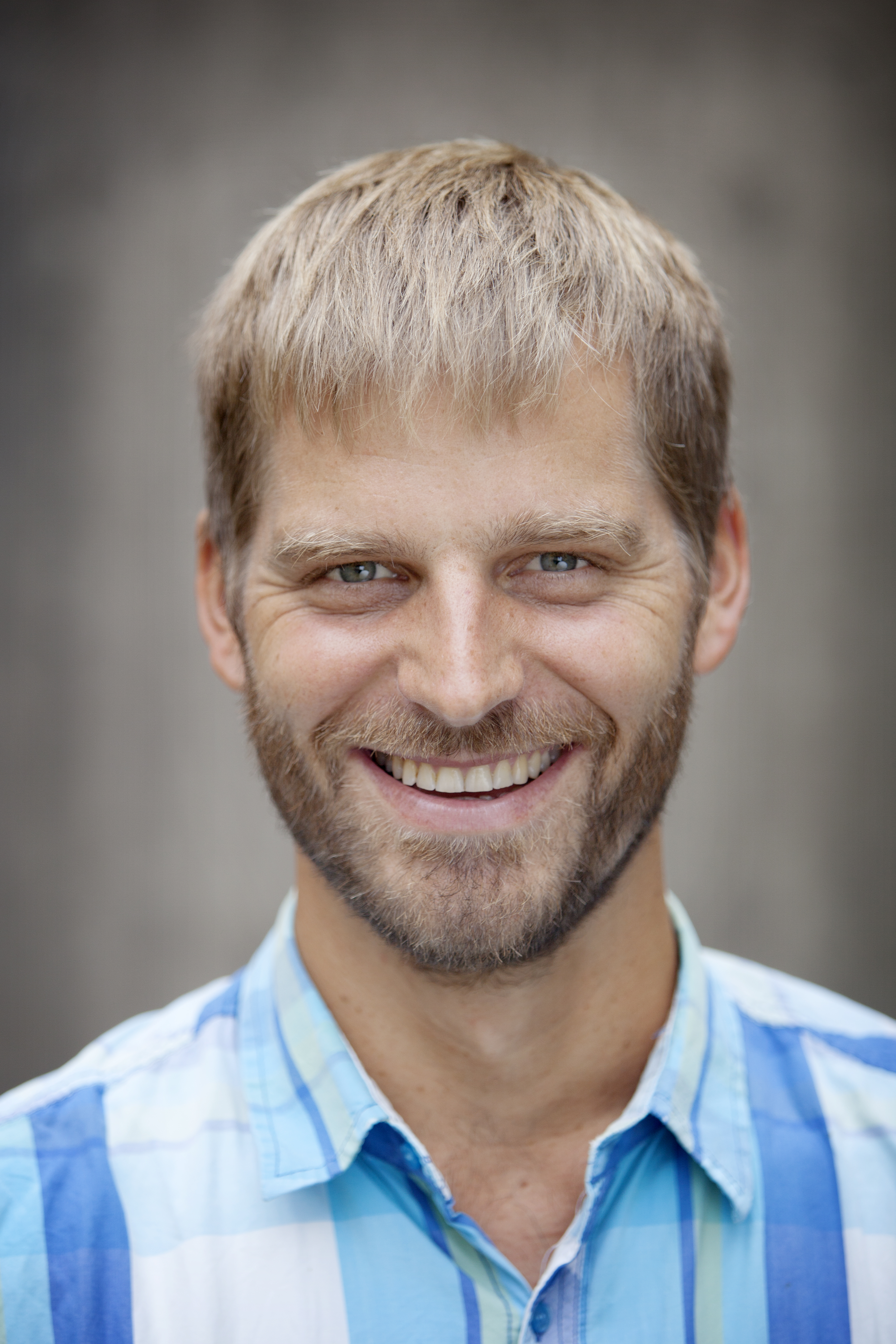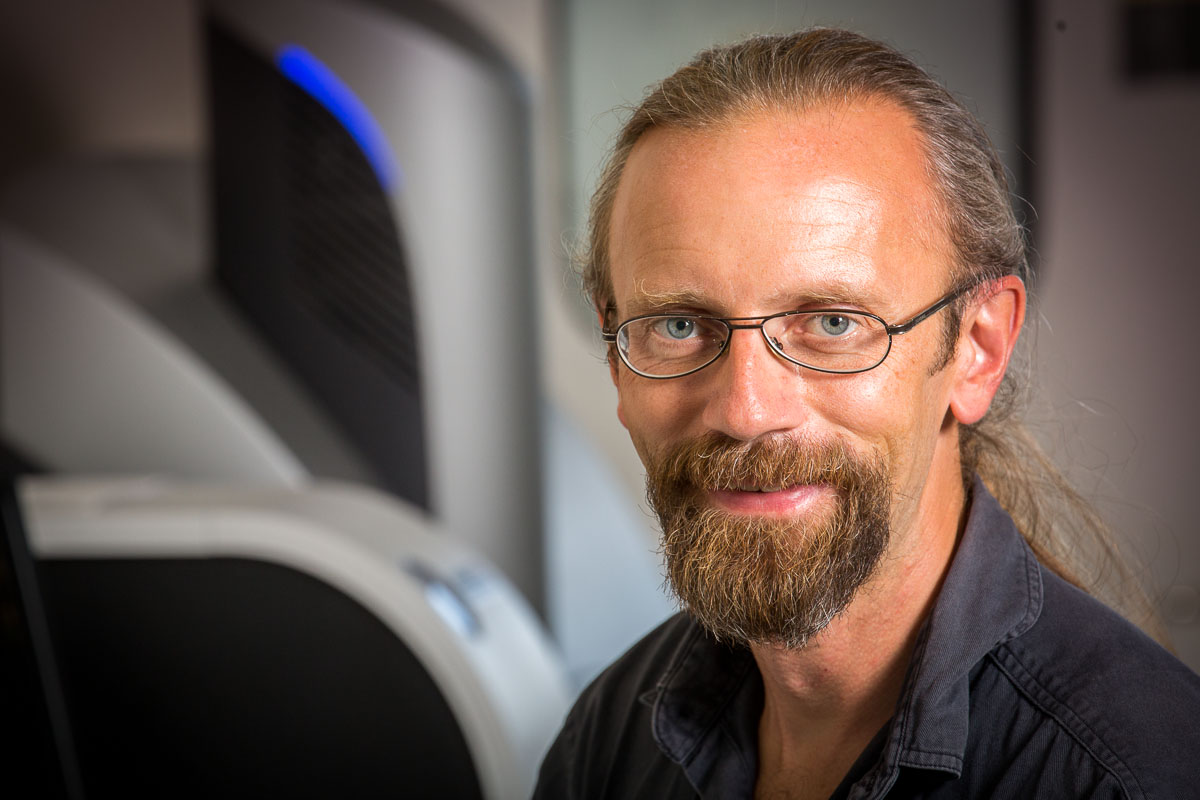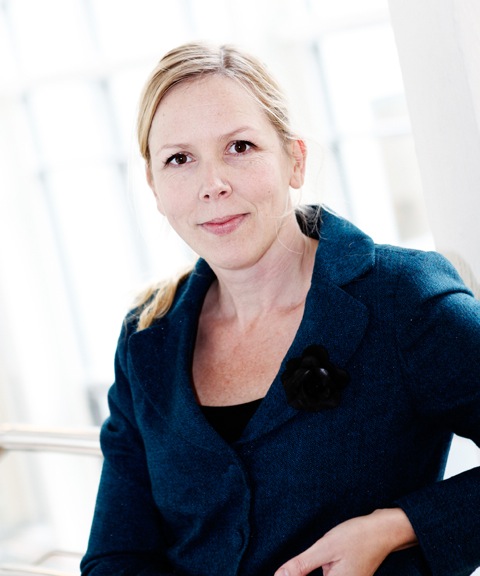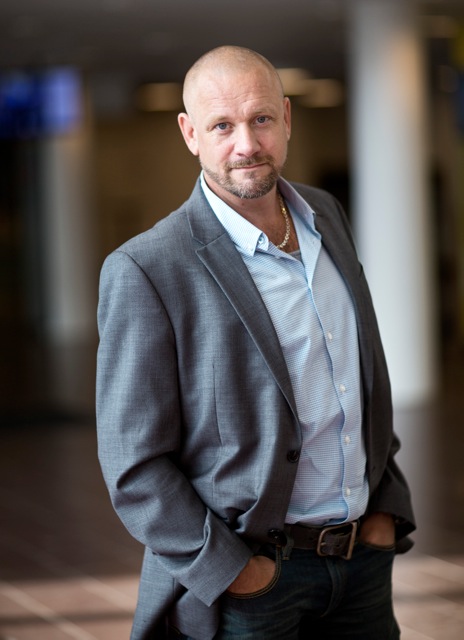- Home
- News and events
- Find news
- Four Researchers from the University of Gothenburg Appointed Wallenberg Academy Fellows
Four Researchers from the University of Gothenburg Appointed Wallenberg Academy Fellows
Ann E. Towns, Henrik Zetterberg, Staffan I. Lindberg and Sebastian Westenhoff. These are the names of the four researchers from the University of Gothenburg who have been appointed within the career programme Wallenberg Academy Fellows. The programme was initiated by the Knut and Alice Wallenberg Foundation and provides long-term funding for promising young researchers in all disciplines.
Wallenberg Academy Fellows is the single largest support programme for young researchers in Sweden. Besides providing the most prominent, young researchers long-term funding, thus enabling them to concentrate on their research, the programme contributes to a greater internationalisation of the Swedish research community. The Fellows are recruited in a process that promotes competition and researcher mobility. It constitutes a unique collaboration between universities, academies and the funding body. The initiative also includes a mentorship programme for the appointed Fellows. Each appointment as Wallenberg Academy Fellow comes with a grant of SEK 5-9 million spread over five years. After that period, Fellows can apply for another five years of funding.
The Gothenburg-based researchers are four of 33 new Fellows appointed nationwide.
‘I’m thrilled that the University of Gothenburg has been able to identify four members of the next generation of successful researchers. And the fact that they come from three different disciplines – medicine, natural sciences and social science – is a good indicator of our university’s breadth,’ says Vice-Chancellor Pam Fredman.
To support advanced research at the University of Gothenburg, a decision was made in February 2013 to introduce so-called strategic co-funding for research projects at this level. For the new Fellows, this implies additional funding from the Vice-Chancellor amounting to 750 000 SEK per year.
The chemistry of life, causes of Alzheimer’s, women in the diplomatic world and what forms a democracy?
The appointed researchers are Sebastian Westenhoff, Assistant Professor at the Department of Chemistry and Molecular Biology (7.5 million SEK), Henrik Zetterberg, Professor at the Institute of Neuroscience and Physiology (7.5 million SEK), Ann E. Towns, Docent (Reader) at the Department of Political Science (5 million SEK) and Staffan I. Lindberg, Professor at the Department of Political Science (7.5 million SEK). Thus, the total amount granted to the University of Gothenburg is 27.5 million SEK. Below follows a presentation of the researchers and their work.
 Natural Sciences, Sebastian Westenhoff: A new tool for studying the chemistry of life
Natural Sciences, Sebastian Westenhoff: A new tool for studying the chemistry of life
In essence, all chemistry going on in a living organism is coordinated by enzymes, proteins that control and increase the speed of vital reactions. Sebastian Westenhoff is developing a new tool that uses extremely rapid laser pulses to get insights into how enzymes function at an atomic level.
Our cells contain thousands of enzymes that, for example, extract energy from the food we eat, make our muscles contract, or repair the damage from the sun’s rays. If one wants to understand how life functions, and why we become ill, one needs to understand those enzymes.
Sebastian Westenhoff, an assistant professor at the University of Gothenburg, is developing a new version of a technology called infrared femtosecond spectroscopy, where scientists use ultra-short laser pulses to study the dynamics of enzymes. An enzyme can be composed of tens of thousands of atoms; Westenhoff will develop a biochemical method to label a few of these. With this tool at hand he wants to investigate how connections between these atoms in an enzyme are changed during a reaction. Among other things, he will study enzymes of photosynthesis, to find out what effects sunlight has on their structure.
As a Wallenberg Academy Fellow, Westenhoff will also map so-called aquaporins, which transport water in and out of cells. He hopes to compile a film that shows the flow of water at a molecular level.
As Westenhoff gains detailed knowledge of particular enzymes, the method he develops will become a new, powerful tool for other researchers who want to study the chemical basis of life.
 Medicine, Henrik Zetterberg: Is Alzheimer’s dementia caused by inflammation in the brain?
Medicine, Henrik Zetterberg: Is Alzheimer’s dementia caused by inflammation in the brain?
Pharmaceutical companies have invested billions of dollars to develop medicines that can slow down Alzheimer’s disease, but without success. Henrik Zetterberg will explore a new hypothesis as to why older people get dementia.
Alzheimer’s disease is linked to a deposit in the brain, so-called plaques, made up of something called β-amyloid proteins. Scientists have long thought that Alzheimer’s dementia would be cured if a drug could remove these plaques. However, it has become increasingly clear that this strategy is a dead end. Enormous amounts of money have been sunk into drug candidates that have turned out to be ineffective or to give adverse side effects.
Now, Henrik Zetterberg, Professor of Neurochemistry at the University of Gothenburg, will investigate a new hypothesis as to why people develop Alzheimer’s that has implications for treatment. Research shows that people can carry plaques in their brains for years without showing any signs of dementia. Zetterberg believes that only specific forms of β-amyloid are toxic. Furthermore, the plaque seems to age and “turn rancid”. Immune cells that reside in the brain, called microglia, react to these changes and attack the plaque. The result is inflammation that is harmful to the brain.
 Social Science, Ann E. Towns: What do women encounter in the diplomatic world?
Social Science, Ann E. Towns: What do women encounter in the diplomatic world?
The number of female ambassadors has increased radically over the last few years. At the same time, the international sphere is controlled by masculine norms. Ann Towns will investigate current gender norms within diplomacy, how female diplomats experience their situation and what they do to refute current norms.
Diplomacy has changed quickly, from being almost entirely male dominated to now seeing some states appoint 20-30% female ambassadors. For instance, Sweden has increased its proportion of female ambassadors from 14% in the year 2000, to 35% in 2010. But women who have entered the male-dominated diplomatic world have often faced prejudice. The Iranian foreign minister, for example, left a meeting in 2007 because he did not want to sit opposite his American colleague Condoleezza Rice. Her legs have also been commented on by a former Israeli foreign minister. Sexual harassment is fairly common in some diplomatic corps, but the restrictive nature of diplomatic practices prohibits women from reacting against such behavior.
Ann Towns, an associate professor at University West in Trollhättan, will explore the gender norms that prevail within diplomacy. What do gender patterns and gender norms look like within diplomacy? What experiences do female diplomats have? What do they do in order to change current norms? Towns will interview diplomats and will also monitor international conferences and embassy events in Washington, D.C., and in Stockholm. Among other metrics, she will also examine gender patterns quantitatively through mapping where in the world female and male ambassadors are located, for example, to see if men get more prestigious posts. As a Wallenberg Academy Fellow, Towns will move to the University of Gothenburg.
 Social Science, Staffan I. Lindberg: What forms a democracy?
Social Science, Staffan I. Lindberg: What forms a democracy?
Staffan I. Lindberg is one of four Principal Investigators of the global project “Varieties of Democracy” (V-Dem). The aim of the project is to explain why a country develops into a democracy and what causes a transition to various forms of democracy. The project’s researchers are now building a gigantic database, to enable a systematic investigation of those questions.
Democracy research is currently limited by the lack of good instruments for measuring how democratic a county is. Within the project “Varieties of Democracy”, scientists measure several different definitions of what constitutes a democracy to include important principles that are not included in extant measures, for example, the degree of citizen participation, how equal the country is and if legislation relies on consensus decisions.
As a Wallenberg Academy Fellow, Staffan I. Lindberg, a newly minted Professor of Political Science at the University of Gothenburg, will continue to lead “Varieties of Democracy”. Scientists in V-Dem have started building a gigantic database of 22.5 million data on about 400 indicators of various forms of democracy, in the 206 sovereign or semi-sovereign states that have existed since 1900. Using the database, they will explore different explanations as to how various democracies develop and are reshaped. The results from the project will be made available on the Internet, for anyone who wants to understand the processes that underpin well-functioning democracies.
ABOUT WALLENBERG ACADEMY FELLOWS
The programme was founded by the Knut and Alice Wallenberg Foundation in close cooperation with five royal academies and 16 Swedish universities. The universities nominate researchers to the programme; the academies evaluate the candidates and present a shortlist of the most promising researchers to the Wallenberg Foundation, which makes the final selection. The universities assume the long-term responsibility for the selected researchers’ work. Wallenberg Academy Fellows is the Knut and Alice Wallenberg Foundation's largest initiative ever. The aim of the programme is to support up to 125 young researchers between 2012 and 2016 with a potential total of 1.2 billion SEK.
For more information about the research
- Sebastian Westenhoff, Assistant Professor at the Department of Chemistry and Molecular Biology, tel.: +46 (0)31 786 3936, e-mail: sebastian.westenhoff@chem.gu.se
- Henrik Zetterberg, Professor at the Institute of Neuroscience and Physiology, tel.: +46 (0)768 67 26 47, e-mail: henrik.zetterberg@clinchem.gu.se
- Ann E. Towns, Associate Professor at University West, tel.: +46 (0)520 22 36 79, e-mail: ann.towns@hv.se
- Staffan I. Lindberg, Professor at the Department of Political Science, tel.: +46 (0)31 786 1226, e-mail: staffan.i.lindberg@pol.gu.se